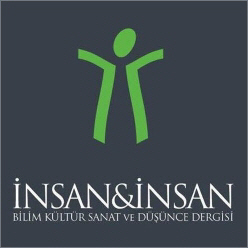Abstract: In the course of the rise of modern states throughout the 19th and 20th centuries, the do¬main of the human factor and as well as the body, health, and industrious capacity of its productive generations have acquired an ever increasing significance, as to the defence and protection of the boundaries of the nation-state and its economic development. Within their bio-political perspective and responsibility to regulate the population in relation to its prospective social, political, and eco¬nomic welfares and securities, modern structures of authority were implementing the “regulation” of this particular domain through a mechanism of power. Within the framework of these regulatory mechanisms of surveillance counted particularly themes such as the population’s birth, death, li¬fe-span, fertility rate, general health status, epidemics, frequency of illness, hygiene, and nutrition.
In this context, corresponding to the ever waxing structure of the modern state, the population as well as processes pivotal to the population have constituted a major sphere of intervention during the period of the Turkish Republic. Major losses of the population, which could have been actively emp-loyed in processes of production and defence, as result of long lasting wars prior to the foundation of the Republic, added by the remainder’s struggle with unattended and epidemic illnesses, proved just how important the matter of the population was for the future of the country.
This paper mainly seeks to answer how efforts pertaining to the population, attempts to increase the population and to improve the health of society starting from its children have been reflected in children’s periodicals during the period of the Early Republic. It aims to elaborate the designated insufficiencies in child care, and the corresponding suggestions and messages directed at mothers and parents in this period by the mediation of children’s periodicals, as well as the habits children, as future citizens of the Republic, were expected to acquire in their daily life. It will moreover be explored what type of body, idealized within the population perspective of the early Republic, emerges in the light of these descriptions, and why such a type of body had been called for.
The focus of this study are the particular reasons, justifications, the methods and recommendations that have accompanied the re-regulation of society by the mediation of children’s periodicals during the period of the early Republic. In this context, child death was counted among the primary obs¬tacles to population growth, and the means to surpass this problem were the methods and recom-mendations to mothers and parents of how to raise healthy and fit children illustrated in children’s periodicals. As such, the paper reveals how a new conception of the individual and society that puts the notion of a healthy body and healthy habits at its very centre has been attempted to be constitu-ted by means of children’s periodicals.
Keywords: Modern state, Children’s periodicals, Child care, Idealized body.
Annelik Sanatı: Erken Cumhuriyet Dönemi Çocuk Dergilerinde Çocuğun Bedensel Kurgusu
Özet: 19 ve 20. Yüzyılda modern devlet yapılarının yükselmesine bağlı olarak ulus-devletin sınırlarının korunması, savunulması ve ekonomik kalkınma yoluyla güçlendirilmesi gibi amaçlar çerçevesinde insan faktörü ve üretken durumda olan neslin bedeni, sağlığı, üretkenlik kapasitesi devletler için gittikçe önem kazanan bir alana dönüşmüştür. Zira modern iktidar yapıları, sahip oldukları biyo politika perspektifi ile nüfusu düzenleme sorumluluğu çerçevesinde toplumların gelecek ekonomik, sosyal, siyasal refahları, güvenlikleri açısından tüm bu alanın iktidar mekanizması tarafından “düzenlenmesini” gerçekleştiriyorlardı. Bahsi geçen düzenleyici denetim mekanizmaları çerçevesinde odaklanılan konuların başında, sahip olunan nüfusun doğum, ölüm, yaşam süresi, doğurganlık oranları, genel sağlık düzeyi, salgın hastalıklar, hastalıkların sıklığı, hijyen ve beslenme gibi konular gelmekteydi.
Bu bağlamda Türkiye’de Cumhuriyet döneminde giderek güçlenen modern devletin oluşumuna paralel olarak nüfus ve nüfus ekseninde gelişen tüm süreçler devletin, temel müdahale alanlarının başında gelmiştir. Zira Cumhuriyetin kuruluş süreci öncesinde süren uzun savaş dönemlerinde, üretim ve savunma süreçlerinde aktif durumda olabilecek nüfusun önemli bir kısmının kaybedilmesi, kalanların ise güçsüz, sağlıksız, bakımsız ve salgın hastalıklarla boğuşuyor olması nüfus meselesinin, ülkenin geleceği açısından ne derece önemli bir mesele olduğunu göstermiştir.
Bu çalışmada temelde erken Cumhuriyet döneminde nüfus ve nüfusun arttırılması ve çocuklardan başlanarak toplumun sağlıklılaştırılması eksenli çabaların, çocuk dergilerine nasıl yansıdığı? Çocuk bakımı konusundaki yetersizliklerin neler olduğu? Bu yönde annelere ve ebeveynlere dönemin çocuk dergileri aracılığıyla ne gibi sağlık öğütleri, önerileri ve mesajlar verildiği? Gelecekte Cumhuriyetin yetişkin vatandaşları olacak olan çocukların gündelik hayatlarında hangi alışkanlıklara sahip olmalarının idealize edildiği sorularına yanıt aranacaktır. Bununla beraber tüm bu anlatı ekseninde ortaya çıkan ve erken Cumhuriyet dönemi nüfus perspektifinde idealize edilen çocuğun beden formunun nasıl bir beden olduğu ve bu beden yapısının, içerisinde yaşanılan siyasal ve sosyal konjonktür ile olan bağı, neden böyle bir bedene ihtiyaç duyulduğu sorunsallaştırılacaktır.
Bu çalışmada erken Cumhuriyet döneminde, devletin çocuk dergileri aracılığıyla nüfusu yeniden düzenlemesinin hangi gerekçelerle, hangi yöntem ve öneriler eşliğinde gerçekleştiğine odaklanılmıştır. Bu çerçevede ülke nüfusunun artmasının önündeki en ciddi engellerin başında yaşanan çocuk ölümleri olduğu, bunu aşamanın yolu olarak da çocuk dergilerinde annelere ve ebeveynlere sağlıklı ve zinde nesilleri nasıl yetiştirmeleri gerektiği ile ilgili yöntem ve önerilere değinilmiştir. Böylece geleceğin sağlıklı beden yapısına sahip ve sağlık alışkanlıklarını yaşamın merkezine koyan yeni bir birey ve toplum anlayışının çocuk dergileri aracılığıyla nasıl inşa edilmeye çalışıldığı ortaya konmuştur.
Anahtar kelimeler: Modern Devlet, Çocuk Dergileri, Çocuk Bakımı, İdealize Beden.
